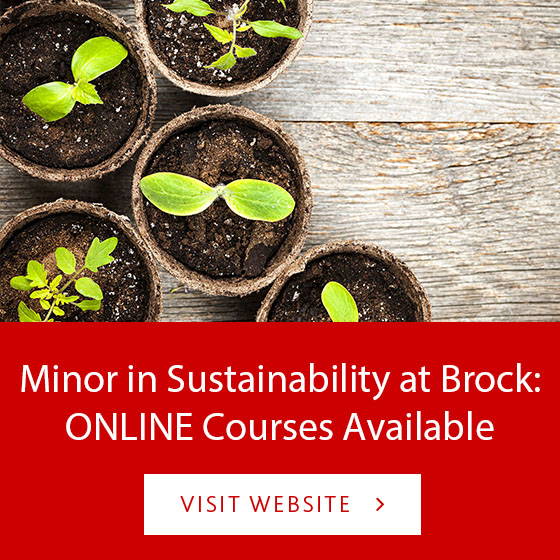
Photo (left to right): Meredith DeCock, Mike Kirkopoulos, Liette Vasseur, Mayor Sandra Easton, Marilyne Jollineau, Jessica Blythe
On Thursday, December 12th the Environmental Sustainability Research Centre welcomed both Mayor Sandra Easton and CAO of the Town of Lincoln, Mike Kirkopoulos, to Brock to provide them with a summary of the work done through the Brock-Lincoln Living Lab (BL-LL) partnership in 2019 – including opportunities for Brock students and knowledge mobilization activities!
Developing an Operational Plan (OP) for the work of the Brock Lincoln Living Lab (BL-LL) was an important priority this year. The purpose of the OP is to provide actionable items that allow the Town to move forward in an integrated way toward the goal of becoming a sustainable community. The plan includes specific actionable items constructed over the next four years for five priority projects, as identified by the Town’s Senior Management Team. Three additional projects led by ESRC researchers are also being included under this OP.
Brock University students have also had the chance to learn more about the BL-LL through experiential education opportunities including Master of Sustainability student projects in SSAS 5P03 (Problem Solving in the Environment) and a field trip to the Town of Lincoln for the SSAS 5P01 (Foundations of Sustainability Science and Society) student cohort in November 2019. In terms of knowledge mobilization, those involved in leading the BL-LL have been busy throughout the year presenting at various conferences, Brock Board meetings and courses at the university.
The 2019 year was very productive for the BL-LL team, led by Dr. Marilyne Jollineau, and all are looking forward to another exciting year in 2020!
































